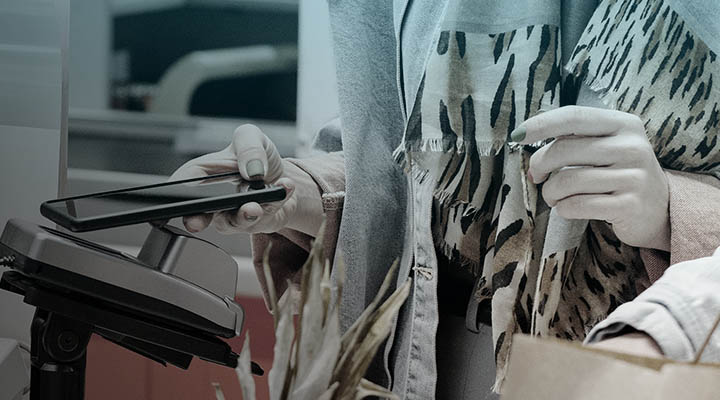Did you know that in April 2020 retail consumer expenditure in the UK dropped by 30.5% from the previous month? A quite shocking statistic for an industry that is already grappling with dwindling store footfall and increasing demands for online services. The pandemic has only accentuated the demand of ecommerce and the ongoing trend of dwindling footfall, but has also presented some opportunities. Raconteur's Future of Retail report includes commentary from some of the industry's leading retail thought leaders and sheds some light on what we can expect to see from the industry over the next decade. Following these trends may not be suitable for every retailer. However, there are certainly examples of significant gains for retailers who made the right choices for their brand during the pandemic. We have pulled out the six forecasts from the report.
Return Of Physical Stores
Covid has restricted the use of brick-and-mortar stores. By default, consumers and retailers have delved into ecommerce as a priority. Although ecommerce has become increasingly relevant, there will always be a place for physical stores. The difference being that there will be fewer stores which will offer a better customer experience. You can look to enhance your customer experience by tapping into their emotions. This can be achieved by introducing high-touch sensory experiences into your brick-and-mortar stores.
Personalised Offers
Whilst it is not a new phenomenon, many retailers have struggled to utilise data to deliver a personalised customer experience. Personalisation using data driven algorithms can create hyper personalisation offers for customers, and this will only improve in the upcoming years. Ecommerce has raised the bar for brick-and-mortar stores because they offer deeper personalisation which can further discourage the in-store retail experience. Creating a more personalised customer experience through the use of data should be a priority for retailers looking to boost sales and ensure retention.
Blended Retail Experience
Covid has disrupted the retail industry to the point where it may be feeling the impacts of the pandemic as late as 2025. Futurist, Dr Richard Hames, suggests that retailers should look to collaborate with businesses from other sectors such as those from the hospitality industry. This will create a blended and well-rounded customer experience as well as additional revenue opportunities. Partnerships of companies have already helped retailers to survive and industries such as entertainment and shopping certainly offer opportunities for the future.
Customer Expectation Rule
In the year 2025, retailers are likely to increase their interests in local communities. This means they will be looking to provide local communities with more suitable offers and a deeper level of personalisation. Furthermore, retailers can stay aligned with local customer expectations through digital solutions. For example, technologies like facial scanners can provide unique recommendations to personalised to match the skin of the consumer, whilst virtual reality can allow customers to interact with products and read information in an artificial environment.
Smart Supply Chain
In the future, retailers need to consider smart supply chains. This modern logistics approach introduces AI which can be used to help predict supply and demand. This will significantly decrease food and clothing wastage which to date are not predicted accurately. In 2030 smart supply chains will be aligned to customer demand allowing retailers to deliver an accurate supply. These supply chains will include more progressive suppliers and tap into the use of AI capabilities to improve their efficiency. AI to AI integration will also mean that supply chains have automated customer-supplier negotiations and can decrease waste to help the environment.
Seamless Shopping
2030 will also bring seamless shopping experiences to customers through various social platforms with the aim of decreasing waiting time for consumer queries. This includes the use of smart AI chat bots and user generated content to provide a highly personalised experience. In the report it is predicted that shopping will include immersive experiences with augmented and virtual reality. Fulfilment will also include drone delivery.
Conclusion
While the current circumstances may prove to be extremely difficult for many retailers, there are plenty of new technologies and innovations that will help to encourage a rapid recovery. To learn more about these future innovations click here to read our Revolutionising Retail ebook.
If you would like to discover ways in which you can experiment with these new technologies BJSS’ digital design brand SPARCK has a proven approach to experimentation and innovation. Through experimentation we are helping some of the world’s leading retailers to rapidly deploy new innovations within weeks rather than years. To see how SPARCK can help your business please contact hello@sparck.io
Published
April 29, 2024Reading time
3 minutesRelated posts





